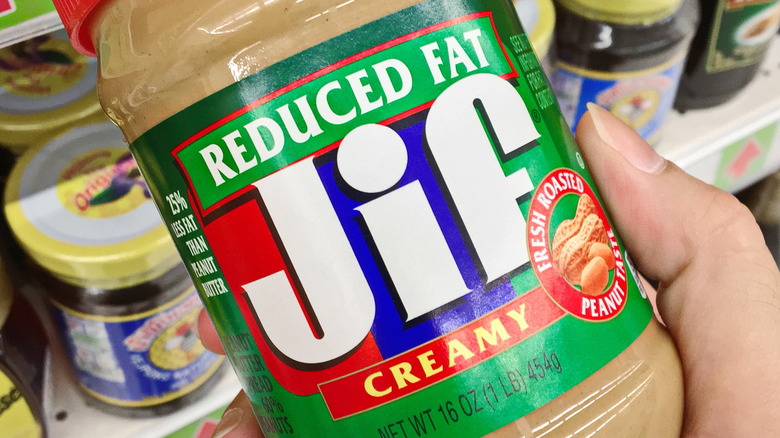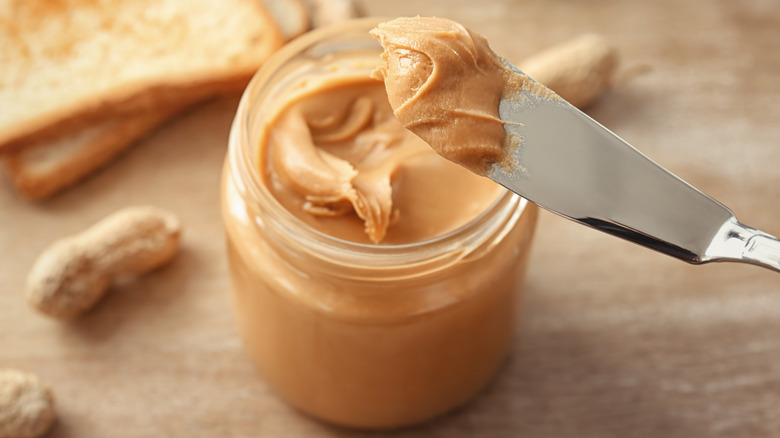Why You Might Want To Think Twice About Eating Reduced-Fat Peanut Butter
When people commit to starting a diet or make a conscious decision to eat healthier or lose weight, they generally become label readers who seek out specific types of products.
If a person determines that they need to consume less fat, then they might navigate the grocery aisles for items that tout themselves as a fat free or reduced-fat option. Although this individual's intentions are good, it's important to recognize that not every reduced-fat food is what it seems. It is also just as significant to understand that not every fatty food is harmful to your body. As Harvard Health Publishing notes, while trans fats are bad for you, polyunsaturated and monounsaturated fats provide a number of health benefits from building cell membranes and absorbing essential vitamins and nutrients to lowering cholesterol. For example, fish contain omega-3 fatty acids, which can reduce the risk of heart attack and stroke (via Web MD).
Saturated fats fall somewhere in between, with the American Heart Association recommending limiting one's intake to about 13 grams of saturated fat per day.
Reduced-fat peanut butter isn't necessarily better for you
The low-fat dietary craze became popular in the 1990s (per JSTOR Daily), and peanut butter was among the many products that jumped on the "fat is bad for you" cultural bandwagon. But reduced fat doesn't necessarily equate to being healthier.
According to MSN's interview with Lauren Blake, R.D., a registered dietitian at Ohio State University's Wexner Medical Center, reduced-fat peanut butter not only has approximately the same number of calories as regular peanut butter, it is also loaded with added sugars that essentially negate any benefits derived from the lower fat content. She advises switching out that sugar-laden option for a natural peanut butter devoid of added oils, cane sugar, or trans fats. Healthi Nation further points out that natural peanut butter, which consists of just two ingredients — peanuts and salt — has 17 grams of fat. However, the key here is that natural peanut butter contains mostly monounsaturated fats, which are the good kind that your body needs. Muscle & Fitness Magazine contends that lower fat peanut butters basically defeat the purpose of eating peanut butter as an energy source of protein, often replacing that fat with double the amount of carbs as regular peanut butter.
The next time you are at the store mulling which peanut butter to purchase, remember that you don't need to eliminate all fats. Just focus on avoiding the bad ones.

